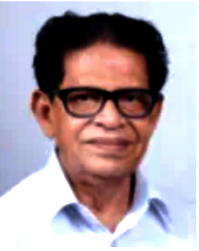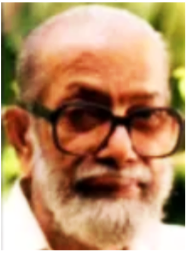These days we are not ruled by any system of value, but by the market. The market decides what we should eat, what we should drink and what we should wear. It even decides how we should worship, and how we should behave in our families. In the past people cultivated food crops and most of the things they consumed came from their farms. But today we survive on fast foods.
Fashion Designers decide what we should wear, Soft Drink companies decide what we should drink. Our worship is often controlled by Tour Operators who organize tours to places of Pilgrimage. The Gold and Diamond merchants decide how we should show our love to the family members by giving what gifts on which occasion. Marriages are controlled by videographers! Markets rule us and we do as they dictate. Even our religious festivals have become occasions for discount shopping.
You have now understood the importance of protecting the world around us. Will-this be enough? Can a society survive without ensuring that its members have a healthy life style? Won’t it be dangerous if people surrender themselves to different kinds of addiction? Let’s find out.
Rice (Poem) About the Poet
Prof. Chemmanam Chacko was born in 1926, at Mulakulam in the erstwhile Travancore. He is a popular poet in Malayalam. He is a master satirist and he is fond of poking fun at the trivialities of people and their customs.

Rice (Poem) About the translator
Prof. K. Ayyappa Paniker (1930-2006) is a poet, literary critic, an academic and a famous scholar. He is pioneer of modernism in Malayalam poetry and his book “Kurukshetram” is a turning point. He taught English in various colleges and universities. He retired as Director, Institute of English,
University of Kerala.

Rice (Poem) Meaning Of The Poem in English
Stanza 1: After four years of research in North India, I return home. I have received a doctoral degree. I also received a lot of praise for my work on making toys with husk. I am bored with eating chapatti every day and now I want to eat a meal of athikira rice (a variety of rice popular in central Kerala).
Stanza 2: When I get back home, it will be the planting season. My father is in the fields below our house. He is wearing a handloom dhoti stained with yellow mud. He is excited about the water of the Varanganal canal. He will greet me amidst the shouts of ploughing with several oxen.
Stanza 3: The oxen will stop when they see me walking with my suitcase. There is a smile coming to my father’s lips and he does not show it. From the field itself he asks me when I started my journey from there.
Stanza 4: My little brother is carrying the tender saplings to be planted where the ploughing is done. When he sees me he will run and shout so that the people at home can hear him, saying “Mother, brother has arrived.”
Stanza 5: I walk carefully along the dyke so that I don’t upset the baskets kept there. They are full of seed. At last I reach home. Mother has drained the well-cooked rice.I tell the train to run faster so that I can get home quickly and eat to my satisfaction.
Stanza 6: The bus stops on the road close to my house. When I left the place palm-thatched houses could be seen in the distance on the right side. But now there is nothing. There are only trees. The place has changed completely.
Stanza 7: All around me I see rows of rubber plants on the ridge. They have grown twice my height. I used to see modan and vellaran (varieties of paddy) here. I am confused even about the path leading to my home.
Stanza 8: There is no noise of people below. No shouts of ploughing. The whole field is planted with areca nut palms. In the corner, along the canal, there are the dealwood (wood that is soft and easy to saw, usually used for making packing cases and boxes) trees.
Stanza 9: I get into the house. On the southern side, my father is watching workers fixing up the machine for making rubber sheets. He looks happy and contented.
Stanza 10: My father tells with some pride that he has stopped producing rice. It was quite inconvenient. The farmer gained nothing. Only fools will try rice-farming for any gain. Rubber money is better. Good times have come. The government gives rice to those who don’t have paddy fields.
Stanza 11: My small brother runs to meet me. I am eager to eat a full meal of athikira rice. He is carrying the rations for the entire household. He trips over something and scatters the wheat all over the yard.
Stanza 12: A plane is ying above us. It is going north. The noise of the plane drowns my brother’s loud cries. The Chief Minister is ying to the Centre to get more grains. He is ying above the cash crops which are now growing like trees. No one promotes the farming of rice here.
Stanza 13: Can we get some husk from the Centre to make toys? I don’t know.